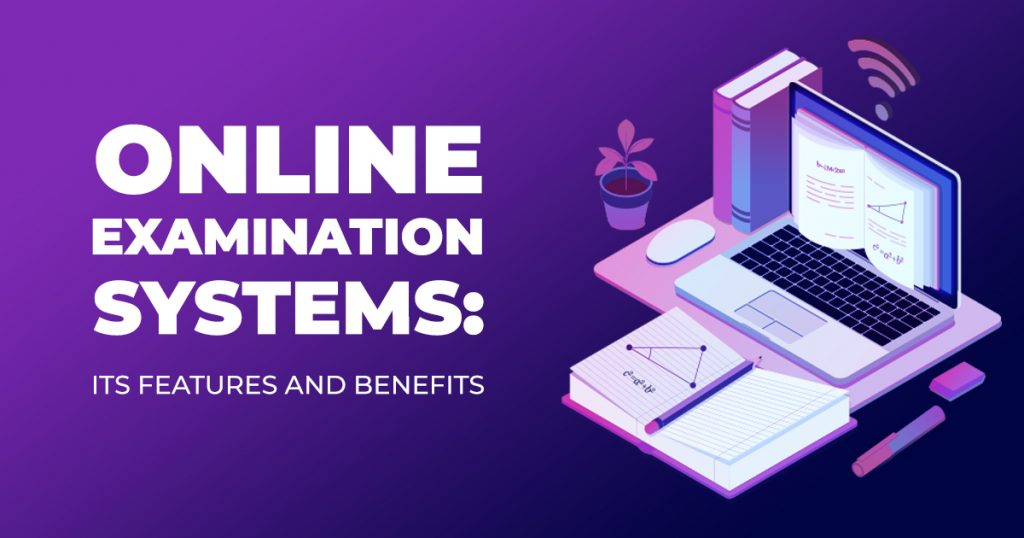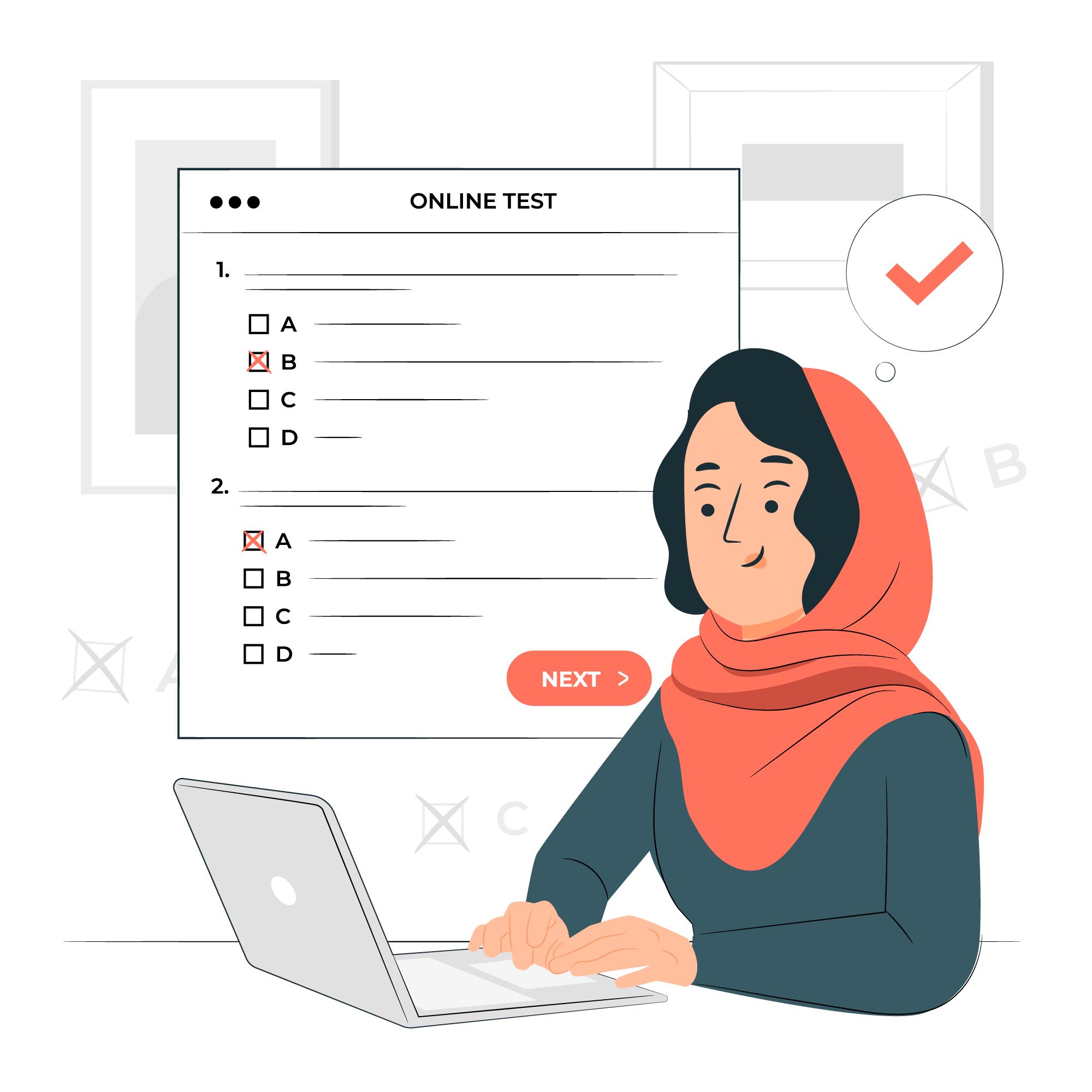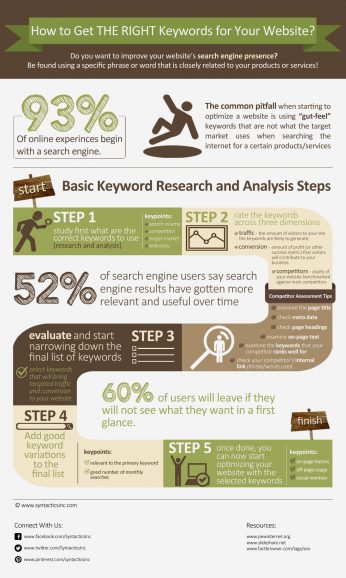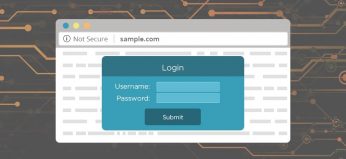
Online Examination Systems, its Features and Benefits
Whether for online classes or school or job applications, taking examinations online has become part of the norm. One cannot contest the usefulness of online quizzes or exams. But just as remote workers should take steps to ensure security, so should Online Examination Systems. So, you create a no-contact exam through an Online Examination System that automates scores and creates reports using predetermined parameters! However, data privacy has become a significant concern now more than ever.
What is an Online Examination System?
Taking examinations online has gained popularity lately. Now, an Online Examination System, or an Online Exam Tool, is an application utilized by some companies, schools, and even Testing Centers to provide online exams.
However, in the past, using such a system was not encouraged due to security concerns. For example, companies or schools might have their questionnaires leaked as a result of a security breach. Applicants or examinees who get ahold of the questions could study ahead of time, resulting in a perfect score. In addition, online Examination Systems may deal with sensitive information. So, industries using said systems, especially governments, should look into web security plans.
However, limitations imposed by the pandemic pushed people to embrace remote work and online classes. So now, the technology limits or discourages cheating.
The features of an Online Examination System
A basic (and common) Online Examination System setup is a bunch of questions. So, the system generates links to the exam, then shares them with examinees, who have to register on the website or application to receive the link. Finally, the link will redirect the examinee to the exam page.
Also, questions are divided into categories, such as logic, biology, grammar, etc. In addition, to avoid the possibility of cheating, the system can shuffle questions around. In this way, no two examinees will not be able to copy each others’ answers.
Generally, academic institutions — mainly secondary and higher education — utilize Online Examination Systems! In addition, the Systems can apply to job application processes, as certain companies might need help with screening applicants.
Also, here’s what the system can do:
-
Certain Online Examination Systems can generate scores.
Or, at least, partial scores, as certain questions require administrator intervention. Essay questions are one example of this!
-
Online Examination Systems use OCR or Optical Character Recognition.
This feature is handy for higher-level online job application exams. According to ABBYY FineReader PDF, OCR is a technology that allows you to convert files into data. Examples of such files include scanned documents, PDFs, or images. So, once someone submits a file, the system will analyze for particular keywords. Then, the system will categorize the data values, which becomes the basis for points.
-
The system can generate customized reports.
Whether it’s for school or job applications, institutions need reports. For example, a school needs grading reports. Likewise, Testing Centers require proficiency level reports. Both academic and work contexts require analytics reports as well.
-
Online Examination Systems can add and store information on their database.
When it comes to taking examinations online, the system has to record answers. Storing information from online exams applies primarily to companies rather than schools, as the data can serve as references. (This naturally invites concerns on data privacy.) So, since the institution has online school exams, they should also protect such sensitive data on their online school systems.
-
Online exam features and functionalities can be “leveled up.”
Depending on the industry and the nature of the online exam, it can be as high- or low-tech as needed. For example, Online Examination Systems can detect devices for cheating. Additionally, cameras or online proctors can check on examinees in real-time. A high-tech system can also validate if someone other than the intended user accessed the exam or not. Perhaps a user opened a tab to search things up. The system may even identify examinees’ internet speeds!
Online Examination Systems in schools
Online Examination Systems are commonly used for schools, especially online schools. For instance, schools may utilize Google Forms or Google Classroom! Taking online exams for school can thus be monitored.
However, some schools may want to have more secure online classrooms. Perhaps they may also want to have a customized online classroom, including complete administrative control.
Of course, certain areas are considered based on the school’s processes, such as year level, subject, grading period, etc. Schools are very particular about the grading system. Thus, it follows that an Online Examination System connects to an Online Grading System.
Testing Centers
There are also Testing Centers that facilitate the taking of specialized exams, such as licensure or board exams. So, Online Examination Systems in Testing Centers have higher-level features, such as more extensive databases with higher-difficulty questions. Specific exams may even allow integration with other devices such as drawing tools or higher-level calculators!
Online Examination Systems at work
When going through an online job application process, chances are the process doesn’t start with an online exam — instead, the exam is merely a part of the screening process.
The Online Examination System can utilize the OCR to screen and categorize data. This strategy works well with companies with more than a dozen applicants; it saves HR time to go through every applicant’s references manually. So, based on the parameters set, the system will generate a summary of applicants. Then, these applicants will move on to the online exam.
Online exams for job applications have questions that may be divided into categories. Upon completion, the system generates partial scores (as essays are crucial for several employers!) Finally, the applicants that pass the online exam move on to the interview stage.
Also, the system can integrate with video call applications like Zoom or Google Meet. This will allow proctors to check on or communicate with examinees taking the online test or exam. Additionally, administrators can input applicant answers to add to their test scores during the interview. Then, the Online Examination System can generate the summary report for the applicant.
Pros and Cons
Pros:
- With online examinations, you overcome the physical limitations of taking exams — the main pro of the Online Examination System is that your reach extends even to distant or remote areas!
- You automate reports generation and analysis, as well as scores and even calculations.
- Also, the Online Examination System allows you to evaluate your examinee turned employee or student!
- It saves time and manpower, especially for proctoring. One can even use the system to schedule proctors for maximum efficiency!
- The system saves the cost of paper, pens, and pencils.
- The Online Examination Systems cut down the time for checking exams.
Cons:
- If one doesn’t manage the rules and considerations, you cannot anticipate cheating. Possibilities may depend on the online exam itself, the number of people taking the online exam, and cheating methods.
- High-profile exams have more security measures compared to simple quizzes.




















Comment 0